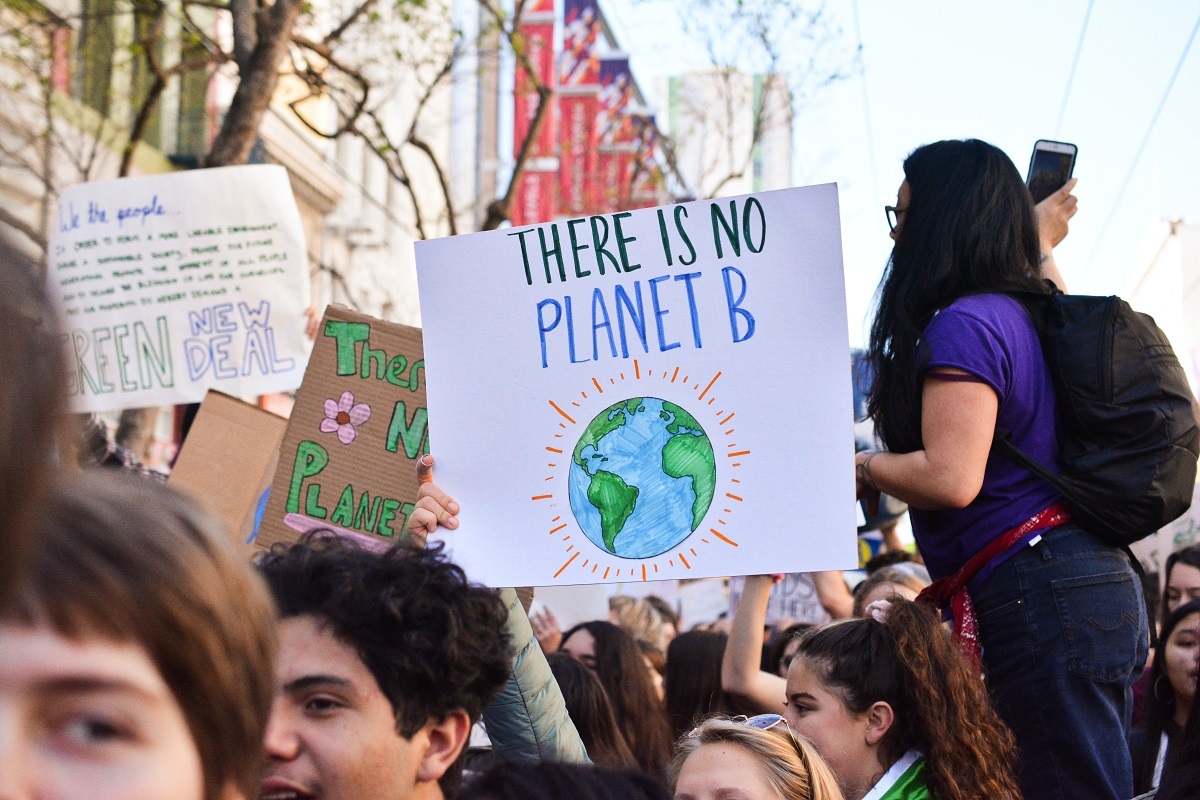It’s time for the youth climate movement to evolve
Jack Johnson & Noah Herfort, Climate Vanguard Co-Founders, on how the youth climate movement can become a force that wins meaningful change
Today is International Youth Day. We’re taking this opportunity to review the progress of the most transformative force for change in the modern environmental movement, the youth climate movement.
The youth movement from 2018-2022
Over the past four years, the youth climate movement has become a driving force of global climate ambition. The movement developed to such a point that by late 2019, it seemed social tipping points precipitating genuine system change were inevitable.
Enter COVID-19. It’s difficult to overstate the pandemic’s dampening effect on the youth climate movement. From one day to the next the potency of mass mobilisation was neutralised, millions of strikers were separated and forced inside, and the media’s focus had shifted (this despite the clear connection between pandemics and the brutalization of the natural world). Now as the youth climate movement emerges from hibernation, and with time to reflect, it’s become clear that certain features of the movement must evolve if we are to win a liveable planet.
“ Ultimately, media appearances, clicks on social media, and photo ops with politicians mean little if unconnected from action that stops the harm”
There is no denying that the youth climate movement has been successful in generating widespread climate awareness and outrage, but that is not enough to secure a just, habitable world. The movement has been largely unsuccessful in disrupting the systemic forces of climate and ecological breakdown. Ultimately, media appearances, clicks on social media, and photo ops with politicians mean little if unconnected from action that stops the harm.
How can the movement evolve to become a force that wins meaningful change?
First, the European portion of the movement – often seen as a stronghold of the movement due to Greta’s pull, and even more so, the racialized eurocentric system that dominates the world – has to lose its insularity. It must build genuine coalitions with frontline communities, workers, and movements of most affected people and areas.
Second, the youth climate movement needs to escalate. In the context of accelerating environmental breakdown and an unperturbed business as usual trajectory, escalation is the only reasonable direction of travel. While tactical escalation should be considered, the escalation we speak of is one of mandate.
“ If policy was buoyed by the science, we likely would not find ourselves in such a dire emergency”
The modern youth climate movement was built on calls of “listen to the science”. This rallying cry is smart because it’s simple. It preserves the innocence that gets the youth so much play in the media, and in many senses this crisis is that straight forward. If policy was buoyed by the science, we likely would not find ourselves in such a dire emergency. However, “listen to the science” lacks a political-economic analysis of the forces driving our death march. It assumes the problem is an information deficit in elite policy circles, but does not engage with systemic drivers of this crisis and the power dynamics that wed politicians to these structural drivers.
Recently, the movement has undergone some process of radicalization (radical referring to roots), as calls for “people not profit” have taken centre stage. This narrative starts to target the imperatives of capitalism (which is “the system” too often left unnamed), but it’s still a long way off of deep engagement with political-economic dynamics.
A radical youth-led think tank in service of movements
It is on the back of these observations, that we have set out to establish Climate Vanguard, a youth-led think tank developing the radical transformations that overcome environmental breakdown and build a just, habitable world. Our vision for Climate Vanguard is a diverse youth collective supporting the youth climate moment with tailored research and bespoke communications assistance. In doing so, we will substantiate the movement’s demands and support a process of radicalization that enables the movement to target the root drivers of this crisis.
“ The youth climate movement remains an incredibly powerful force for change”
Climate Vanguard will launch later this summer with an inaugural report on the pathways to dismantle the fossil fuel industry, and using this research to support End Fossil – an international youth-led campaign demanding an end to the fossil political economy. Our launch will also be accompanied by a pilot project in collaboration with the Green Economy Coalition. The project will map a globally representative sample of the youth climate movement to establish their current orientation towards green economic reform and determine avenues for supporting greater engagement. The project will also identify groups that could become early members of a global youth network supporting radical political-economic transformation.
The youth climate movement remains an incredibly powerful force for change. But, just like any living organism, the movement must evolve. By broadening its engagement with the wider environmental justice movement and dialing in on the root drivers of this crisis, the youth climate movement can be an invaluable force that enables us to collectively realise a world of planetary flourishing and human wellbeing.
Jack Johnson and Noah Herfort are Co-Founders of Climate Vanguard. To discover more - check out their Instagram, follow them on Twitter or why not listen to their podcast.



